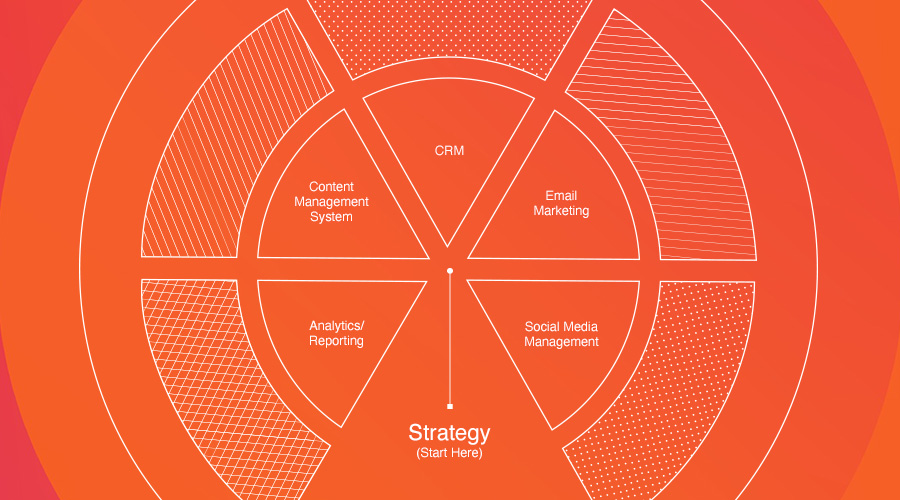Growing up as a ‘90s kid was memorable for a number of reasons. From movies to music, fashion styles to (my favorite) tv shows, there was a lot to like. But, as the Internet started growing up, businesses started to see its advertising potential. The world of the pop-up ad became a late 90’s reality. And it was a horrible reality. A lawless wasteland of fake close buttons and auto-play audio. Thankfully, we all matured throughout the 2000s and into the 2010s, and digital advertising flowered into something far more advanced than the rude window flashing across our screens.
The question now is: Has the business world kept up?
The ultimate goal of marketing used to be to reach as many people as possible. But, brands have finally discovered the efficiency and success of targeting specific groups of people. As marketers, we love buzz words: One-to-one marketing, hyper-targeting, a segment of one, direct marketing…the list could go on and on. But it all comes down to this: Personalization matters.
And it’s Identify-Based Marketing that takes into account identity traits, not just demographic information – like location and income – to allow you to go a level deeper.
How to Know You’re Ready for Identity-Based Marketing
Let’s think past the buzzword and really consider if identity-based marketing is for you. Because let’s be honest, if you’re ready to go down that road you also have to make sure that your house is in order and you are ready to invest time, energy and money.
You might be ready for identity-based marketing if:
- Your team has access to data, but doesn’t know how to best consolidate and activate against it
- You’re already running successful campaigns and are ready to go a level deeper
- You have a solid brand strategy, both internally and externally
- You value privacy and are up-to-date on data privacy laws, like GDPR
- You have an established, efficient martech stack
- You are ready to allocate budget, time and energy to identity-based marketing – and have access to decision makers
Ok, now that you know you’re ready, let’s move on.
The Misconception
As a crucial piece of that world, agencies like us live in a weird space when it comes to identity-based marketing, doubly so for those of us in the B2B space.
Data is often hard, if not impossible, to consolidate into an actionable single-source-of-truth. The biggest misconception about Identity-based marketing is that you can easily do this because you have data. That’s not necessarily true. It’s knowing what to do with that data that can make or break your campaigns.
Differentiator: it’s not technology. It’s how you can creatively use that data and technology. #DF18 pic.twitter.com/iz2tYTY8jk
— Abby Bell (@txeloqueen) September 25, 2018
Many marketers’ speed of access to data isn’t always where it should be, causing data pools to get stale relative to today’s speed of business. And since often times we are one of many marketing partners, a true omnichannel approach is made all the more difficult since data is being split amongst partners. This can limit the line-of-site to the full marketing picture – even in the most ideal of working relationships.
In short, it can be really damn hard to consistently identify audiences and essentially impossible to integrate identifiers – when not everyone is on the same page and onboard. And while the brand-side is what typically drives martech evolutions, they turn to partners to make it all work and, ultimately, to tell their story to the world.
The Truth
It’s a difficult balance that requires as much focus on prediction as it does reflection. We should always be pushing forward while mastering the current state.
So, maybe our question should be: Have we kept up?
While identity-based marketing is a narrowly defined, broadly applied approach to the new reality of big data, the truth is that a customer-centered style of advertising is nothing new. A sound strategy that is well researched and carefully crafted drives forward the inspired idea. And for B2B agencies, that’s the building block of the 2020s, what I see as an exciting time for those of us in the digital media space. A time when access to data will reach a golden era.
With privacy always top-of-mind, the structures will be in place for brands and agencies to create a fully developed ecosystem of data, one that’s shared securely and activated quickly. True identity-based marketing will effectively be ubiquitous, opening up new pathways for creative advertising. Feedback loops will be refined to allow for the medium and the message to sing in harmony like never before. I dare say we’ll reach boy band levels of harmony!
Speedbumps Ahead
But as we work toward that goal, don’t be discouraged by the seemingly endless road full of speedbumps. Stay grounded in strategy, keep the customer in focus, and in the words of the late, great Paul Allen, remember that, “Any crusade requires optimism and the ambition to aim high.” No matter the barriers, we will perfect identity-based marketing and wipe clean the memory of pop-ups.





